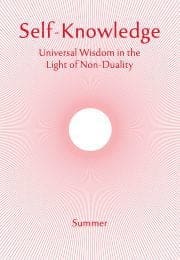Is Vedanta Dogmatic?
A CRITICISM sometimes levelled against the Vedanta (the conclusion of the Vedas—the Upanishadic non-dual teachings) is that it is dogmatic, since its starting-point is the acceptance of the Vedic texts, and the use of reason is confined to elucidating their meaning. At the beginning of his commentary on the Brahma Sutras, Shri Shankara remarks:
The comprehension of Brahman takes place by the ascertainment, consequent on discussion, of the sense of the Vedanta texts, and not by inference or any other means of valid knowledge.
This is taken to mean, by those ignorant of Shankara’s true position, that he has no real philosophy in the sense of an independent critical investigation of truth, that he rejects the claims of reason in all major issues, and substantiates his arguments by reference to Upanishadic revelation (Shruti). Thus, they hold, he cannot be called a philosopher in the true sense of the word, since his reasoning rests on certain claims and presuppositions which not all are prepared to accept.
The deeper and dedicated enquirer will come to recognise that Shankara’s acceptance of the Vedic texts is not the starting point of his philosophy but the culmination, arising out of his theory of knowledge and metaphysical conclusions derived from a purely rational enquiry.
Let us consider first: what do we mean by knowledge? When we use the word ‘knowledge’ to denote that which reveals an existent entity, and not merely in the sense of formal logic which is not concerned with the question of reality, then the following observations can be made.
Knowledge is always conditioned by the nature of the object to be known and not by the individual notions of the perceiving subject. This is what distinguishes it from imagination, opinion or illusion, and gives it the characteristic of universality. Shankara remarks: ‘To say of a post that it is either a post or a man or something else, is not to give it its truth.’ There can be no option about knowledge: the nature of the entity itself determines it. For example, the nature of fire is heat, of water wetness, of space extension, and so on; facts, being independent of time, place and circumstance, are open to verification by all. This, in principle, holds good for all existent entities, whatever their nature, either empirical or otherwise.
What then are the means of knowledge (pramanas)? Not only knowledge, but also the means of knowledge, are governed by the nature of the existent entity. The inherent nature of fire determines the knowledge ‘fire is hot’ and also the fact that it is to be apprehended by the sense of touch. The means of knowledge stand in direct relationship to the nature of the objects to be known. It would be useless to try to know the scent of a rose by any other sense but that of smell, or the sound of bird-song except by hearing; every sense operates and is valid within its own particular sphere only. Reason has a much wider sphere, since it operates on the reports of all the senses; but if there is any reality beyond the realm of the senses, reason will be incompetent to reveal it. Shankara does not draw the conclusion that such a reality would be unknowable, but merely makes the point that it would require a different means of knowing. But have we any grounds for believing that such a supersensuous reality exists? Could it be that all is illusion?
Subscribe or enrol for free guest access to read all of this article and Self-Knowledge online.
Already subscribed or enrolled? Log in:


